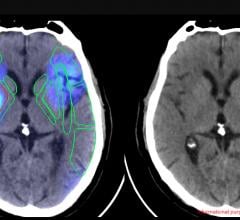July 2, 2007 – The ThinPrep Imager, a new computerized test, can detect more high-grade cervical cancers than a conventional Pap smear, according to a study funded by the Australian National Health and Medical Research Council.
"In the samples read by the ThinPrep Imager, there was a significant 17 percent increased detection of high-grade lesions," said researcher Dr. Annabelle Farnsworth, medical director of the Cytology Department at Douglass Hanly Moir Pathology, in North Ryde. "There was also a 50 percent decrease in unsatisfactory slides," she added.
The ThinPrep Imager is designed to highlight any slides that need further examination, and was used in the study to evaluate liquid-based cytology slides. The researchers found that in samples from 55,164 Australian women, the ThinPrep Imager found 1.3 more cases of high-grade cervical abnormalities per 1,000 women screened than the conventional Pap test.
With the ThinPrep Imager there were also fewer unsatisfactory slides (1.78 percent) than with the conventional test (3.09 percent). This means, according to Dr. Farnsworth, that fewer women might need repeated smears. However, higher rates of further testing could result from the ThinPrep Imager’s ability to find more low-grade cell lesions.
The study findings are published in the June 30 issue of the British Medical Journal.
For more information: www.thinprep.com


 June 06, 2023
June 06, 2023 








